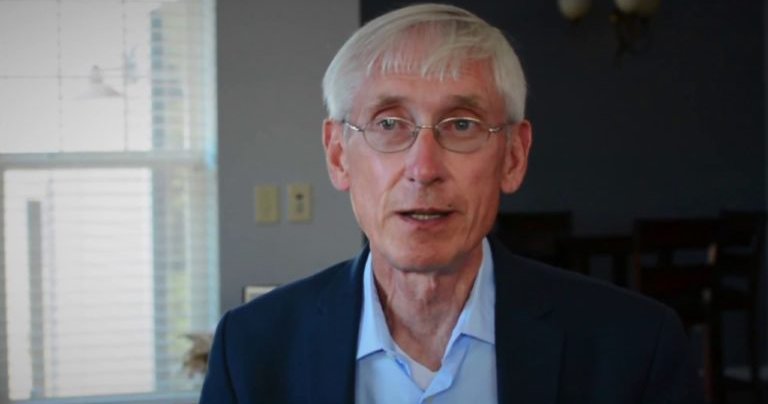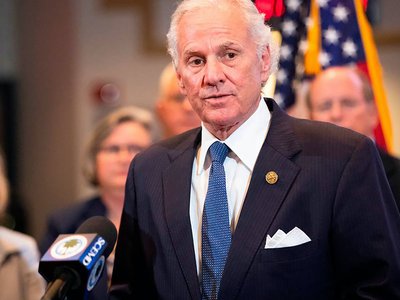Democrat Tony Evers’ plagiarism scandal continues to plague his campaign for Wisconsin’s highest office as he faces serious questions about his integrity and character after being caught lifting material for budget plans on multiple occasions without citing his sources.
Dan O’Donnell blasted Evers in a new op-ed for The MacIver Institute, noting that he plagiarized “a whopping fifteen paragraphs” from a report written by an intern. O’Donnell writes that “Evers’ plagiarism wasn’t simply the result of sloppy citation in the rush to meet his own deadlines; it was intentional theft” and that his conduct “reveals him to be the worst sort of hypocrite and, far worse, utterly devoid of original ideas to back his policies and wholly without the character and integrity to abide by the rules he sets and enforce them against himself and his staff.”
Even worse than the Democrats’ 2014 nominee for governor Mary Burke, who was also caught in her own plagiarism scandal, Evers’ actions show a disqualifying lack of character. He can’t be trusted to lead.
Dan O'Donnell writes more for The MacIver Institute:
In the beginning, there was darkness. Then four score and seven years ago, Tony Evers said ‘give me a school budget or give me death.’
The DPI website includes 178 different references to the unacceptability of plagiarism in public schools, and even features a The jokes about Evers’ serial plagiarism write themselves, but they—along with the speed at which the media buried the story—belie a far more serious truth: That plagiarism of this magnitude reveals far more about character and fitness for public office than most might assume.
That Evers is the head of the Department of Public Instruction makes it unforgiveable.
The DPI website includes 178 different references to the unacceptability of plagiarism in public schools, and even features a video warning students ’that plagiarizing is stealing, as if it’s criminal.’
‘Plagiarism can carry some pretty serious consequences in school,’ the video continues. ‘Each school has its own plagiarism policy or academic honesty policy, but students who plagiarize may get reported to school officials, get an F on the assignment or in the course, or in some cases even expelled from the school.’
What about a state superintendent who plagiarizes? He can apparently get promoted to governor.
No teacher in Wisconsin would accept a book report lifted from Wikipedia, but Evers’ most recent budget proposal includes a paragraph copied directly from the online encyclopedia’s entry on Early Childhood Education.
No serious liberal intellectual would accept a policy proposal stolen from a conservative think tank, but Evers’ most recent budget proposal steals a whopping fifteen paragraphs from an article from the conservative Thomas B. Fordham Institute…written by an intern.
Such is the state of Wisconsin’s media that Evers’ theft is all but gone from coverage of the gubernatorial race. After a few obligatory headlines that included the caveat ‘Walker alleges plagiarism’ or ‘Republican Party accuses Evers,’ the local press has dropped the story quicker than it has apparently dropped any pretense of objectivity.
Evers admitted to plagiarizing at least four different education budget proposals; there is no need for the qualifier ‘Republicans allege’ yet stories about Evers’ plagiarism have invariably included it anyway. This is a rather common tactic that serves to signal to a news outlet’s audience that Evers’ serious ethical lapse isn’t all that serious; it’s just another run-of-the-mill attack by Evers’ political opponents during the height of a bitter gubernatorial campaign.
It’s actually much worse. Every media outlet who dutifully ran a ‘Republicans Pounce on Plagiarism Charges’-style story know it.
Politics aside, the depth and breadth of Evers’ repeated plagiarism cuts to the very heart of who he is as a person.
In his role as state superintendent, Evers has two primary duties: Setting Wisconsin’s education policy and securing and distributing funding that advances said policy. His budget proposals are therefore among the most important (if not themost important) documents he produces.
He couldn’t even complete them without cutting corners.
Any professional writer—heck, anyone who needs to write anything as part of his or her job—will admit that the temptation to cut corners to make a deadline is ever-present. This column is expected at the MacIver Institute every Wednesday. Its author is expected to do a radio show each weekday. Yet if those deadlines were fast approaching and another radio host’s words were used, if another columnist’s ideas were taken, this column likely wouldn’t appear next Wednesday. That radio show might not be on the air tomorrow.
And Evers’ plagiarism wasn’t simply the result of sloppy citation in the rush to meet his own deadlines; it was intentional theft. In his 2012 budget request, Evers copied a 2010 report from the Alliance for Education almost word-for word. Evers, however, replaced the word “students” with the word “pupils.” He also changed only a few words before copying a 2011 paper from the National Collaborative on Workforce and Disability.
Why? To mask the plagiarism. This wasn’t sloppy citation, as Evers claims, this was outright theft along with an attempted cover-up.
Even more amazingly, Evers is still trying to cover it up—blaming unnamed subordinates yet refusing to discipline them in any way. This signals acceptance of grossly unethical behavior that wouldn’t be tolerated in a classroom, a writers’ room, or a board room.
It is however, not only tolerated but effectively encouraged in Tony Evers’ Department of Public Instruction. Is that any way to run a branch of state government…especially the branch of state government tasked with setting ethics policies for Wisconsin’s schoolchildren?
Evers’ conduct thus reveals him to be the worst sort of hypocrite and, far worse, utterly devoid of original ideas to back his policies and wholly without the character and integrity to abide by the rules he sets and enforce them against himself and his staff.






